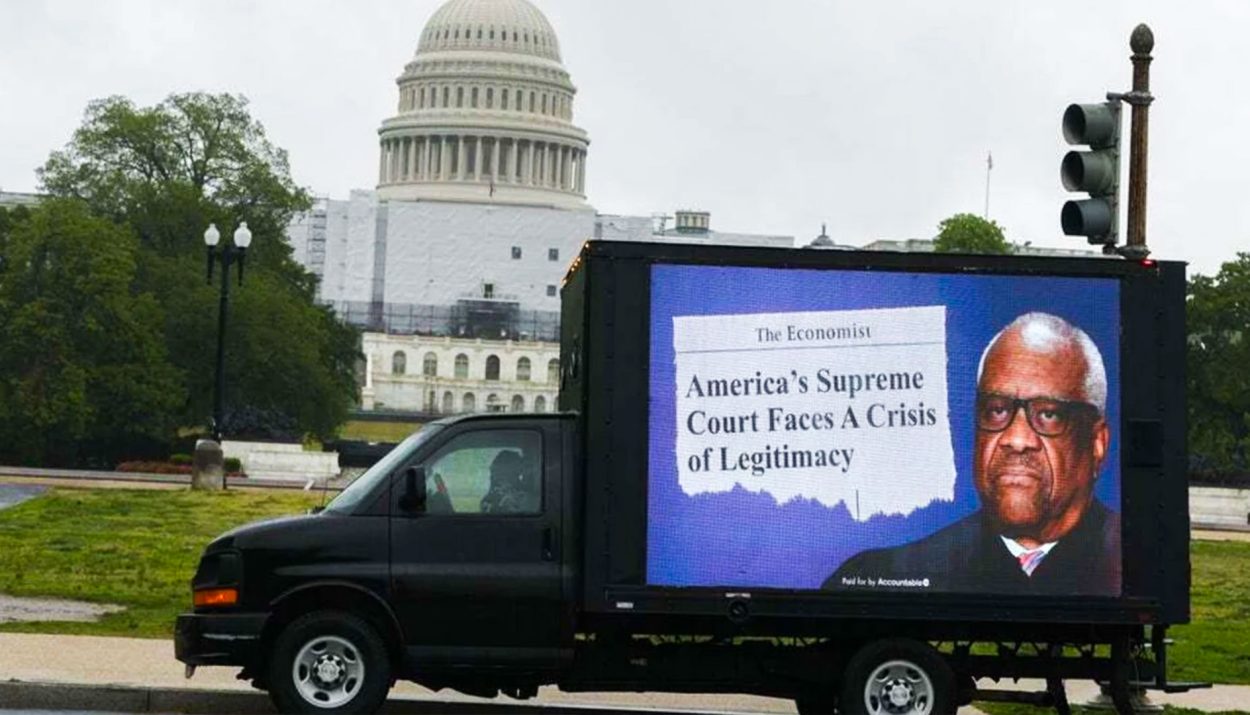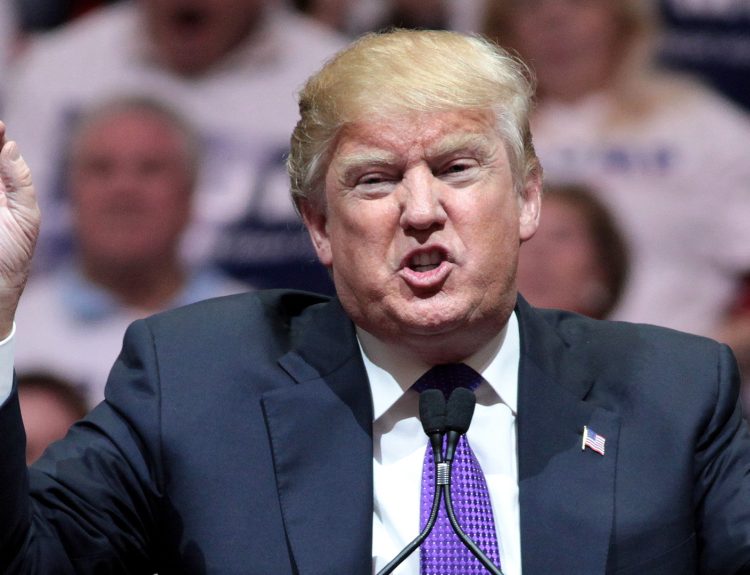Faithful America expressed concern over text messages between Supreme Court Justice Clarence Thomas’s wife, Ginni, and President Trump’s former chief of staff, Mark Meadows, regarding overturning the 2020 election results.
The group argues that Thomas has shown bias and should remove himself from related cases to preserve the Court’s impartiality. The statement has sparked debate over judicial ethics and whether Thomas faces a conflict of interest regarding Trump.
Ginni Thomas’s Trump Connections
Virginia “Ginni” Thomas, Justice Thomas’s wife, is an outspoken conservative activist who supported efforts to overturn Trump’s 2020 election loss. According to reports, Ginni Thomas emailed and texted White House Chief of Staff Mark Meadows, urging him to work to overturn the election results. She regretted these messages but denied influencing her husband’s decisions on the Court.
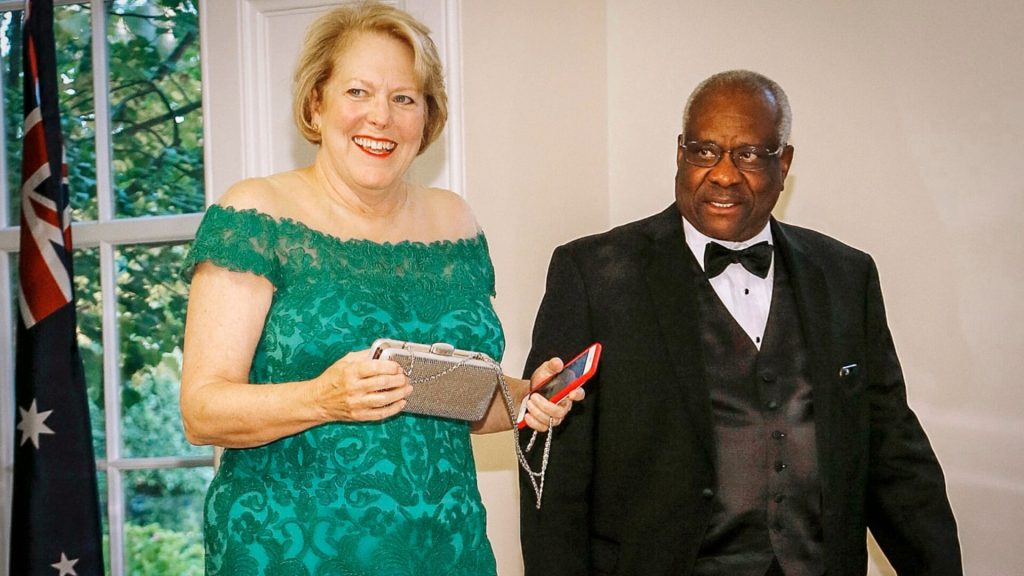
However, Ginni Thomas’s political activism and connections to Trump’s allies have fueled calls for Justice Thomas to recuse himself from Trump-related cases. In particular, critics point to Ginni Thomas’s relationships with Leonard Leo and Harlan Crow, influential conservative donors who have supported causes Ginni Thomas champions. They argue these connections could compromise Justice Thomas’s impartiality in cases involving Trump.
Public Trust at Stake
The calls for Justice Thomas to recuse himself come as public trust in the Supreme Court has dropped to a record low. Only 40 percent of Americans approve of the Court’s performance, and 42 percent say the Court is too conservative. Allowing Justice Thomas to rule on cases where his impartiality has been reasonably questioned threatens to further erode public confidence in the Court.
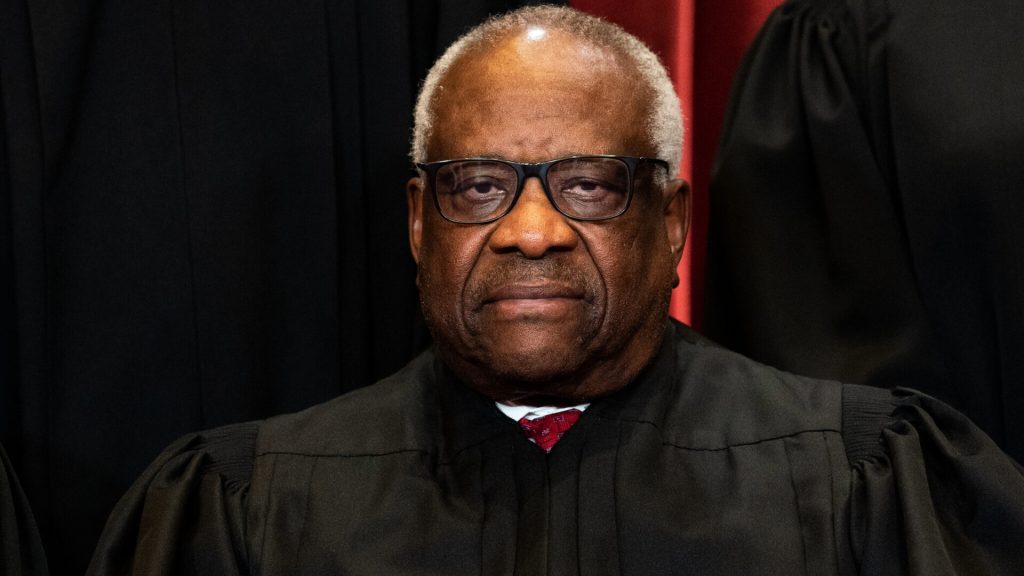
Supporters counter that Supreme Court justices have discretion over recusal and that there is no evidence Justice Thomas cannot rule impartially in Trump-related cases. However, others argue that given the high stakes and controversy surrounding these cases, the appearance of impartiality is equally essential to consider.
Calls for Recusal and Accountability
Faithful America’s petition calls on Justice Thomas to recuse himself from The United States of America v. Donald J. Trump and “pledge to do so from any future cases regarding Trump and the 2020 election.” It cites the Supreme Court’s newly adopted Code of Conduct, which prohibits justices from ruling in cases where their “impartiality might reasonably be questioned,” including when their spouse “has an interest that could be substantially affected by the outcome.”
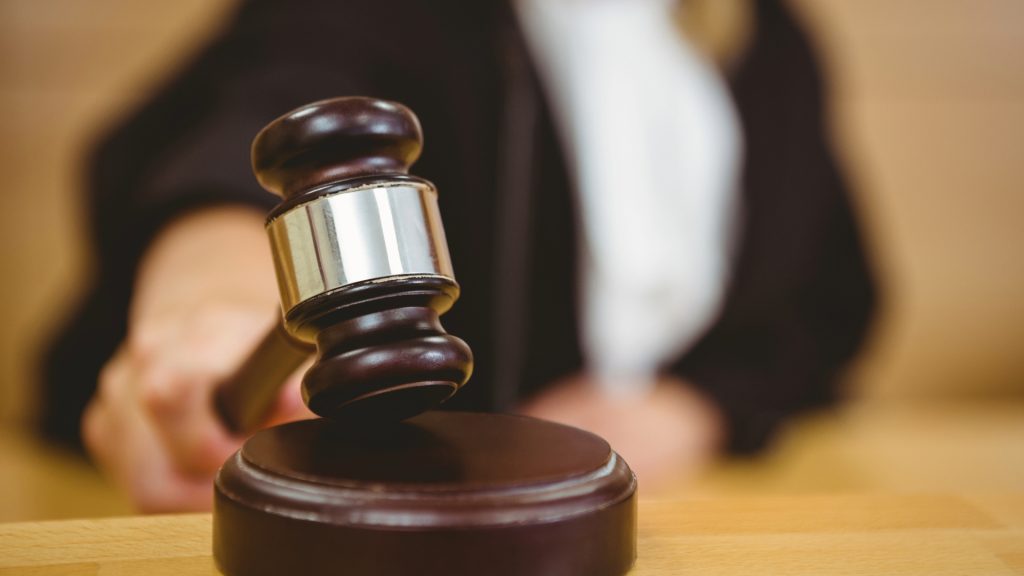
The petition argues that “the record is very clear about Thomas’ wife’s role in trying to overturn the 2020 election, as well as his ties to Leonard Leo.” Faithful America previously circulated petitions against other conservative public figures.
Recusal Requests Nothing New for the Longest-Serving Justice
Justice Thomas, the longest-serving member of the current Supreme Court, is no stranger to calls for recusal. Appointed by President George H.W. Bush in 1991, Justice Thomas has faced criticism regarding perceived conflicts of interest throughout his tenure.
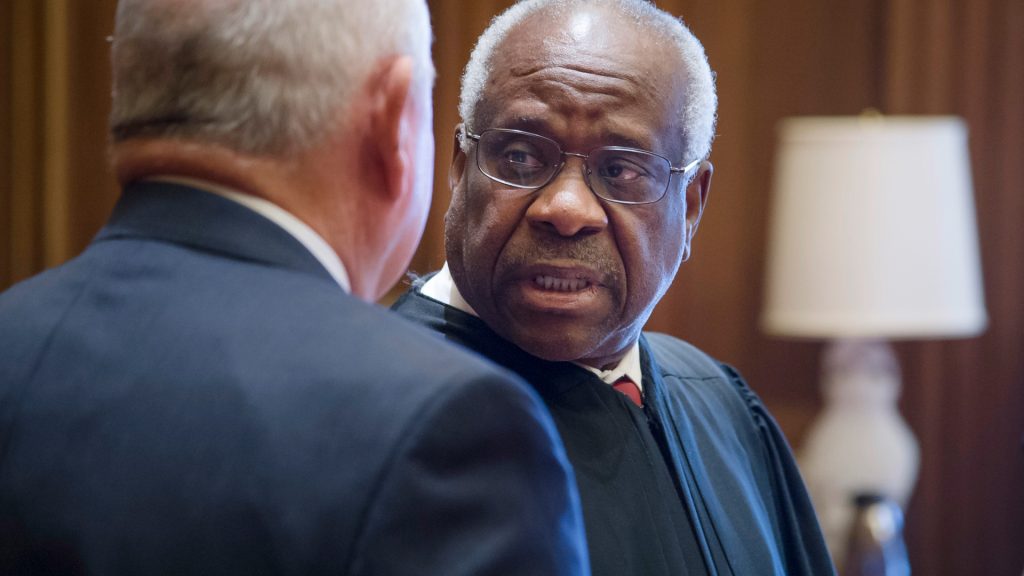
In the early 2000s, Justice Thomas faced scrutiny over gifts and travel expenses paid for by donors with interests before the Court. Though no official reprimand occurred, the resulting controversy led Congress to pass the STOCK Act banning such gifts.
The Legal Basis for Recusal of Supreme Court Justices
The U.S. Supreme Court has broad discretion over when its justices should recuse themselves from a case. According to federal law and the Supreme Court’s Code of Conduct, justices should recuse themselves if their “impartiality might reasonably be questioned.”
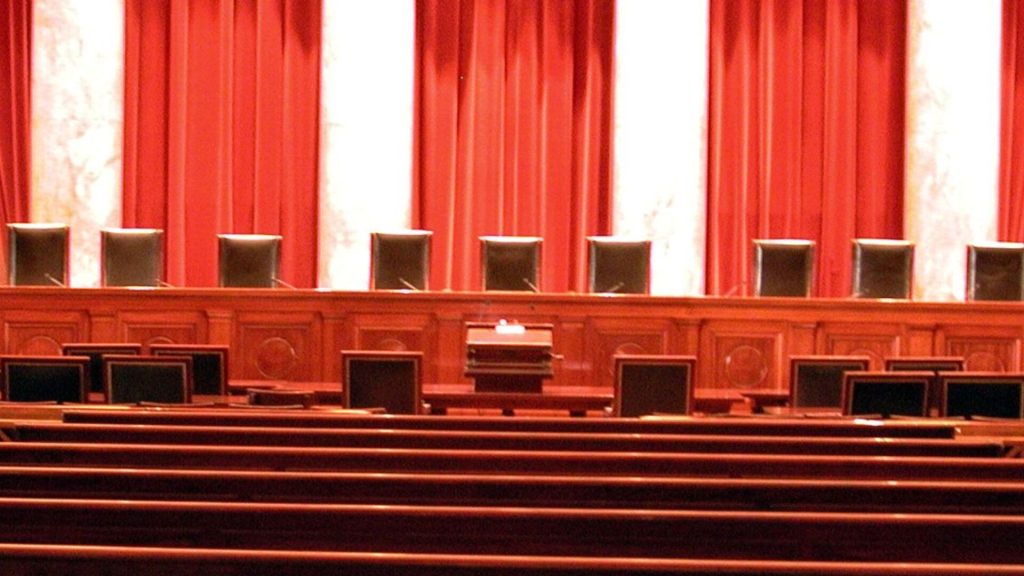
This includes situations where a justice’s spouse “has an interest that could be substantially affected by the outcome of the proceeding.” Justices may need to recuse themselves over financial conflicts of interest to avoid the appearance of bias.
Potential Conflicts of Interest: Justice Brett Kavanaugh
Some observers argue that Justice Thomas is not the only member of the Supreme Court with potential conflicts of interest regarding cases involving former President Trump. Justice Brett Kavanaugh, for instance, was nominated by Trump in 2018 following the retirement of Justice Anthony Kennedy.
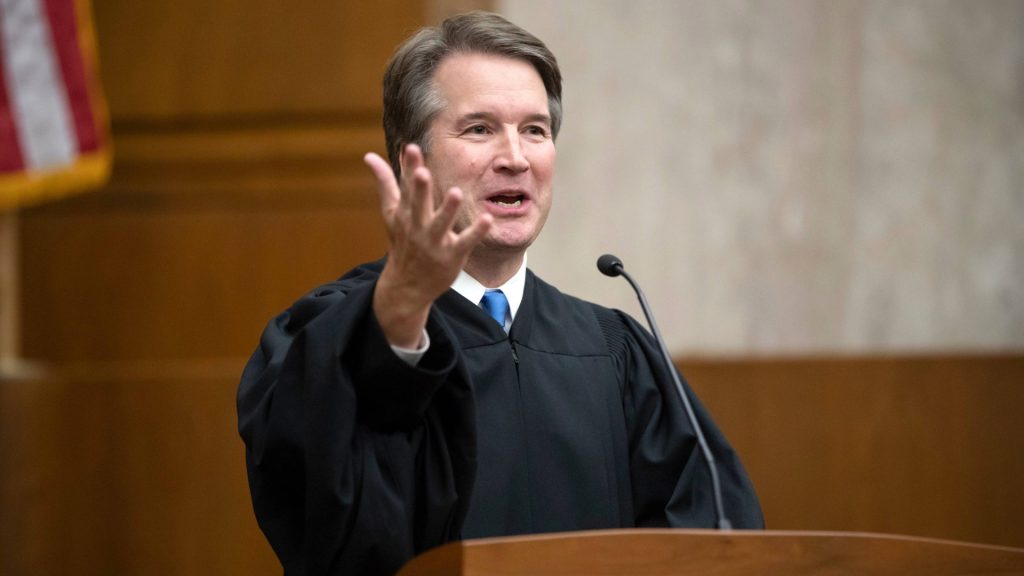
During his confirmation hearings, Kavanaugh faced allegations of sexual misconduct from his high school and college days. Trump and Republican senators strongly defended Kavanaugh during a contentious confirmation battle. Given this history, critics contend Kavanaugh may feel indebted to Trump and prejudiced in his favor.
Potential Conflicts of Interest: Justice Neil Gorsuch and Amy Coney Barrett
Likewise, Justices Neil Gorsuch and Amy Coney Barrett were also nominated by Trump and confirmed with almost unanimous Republican support. Their nominations fulfilled Trump’s pledge to pick Supreme Court justices who would overturn rulings like Roe v Wade.
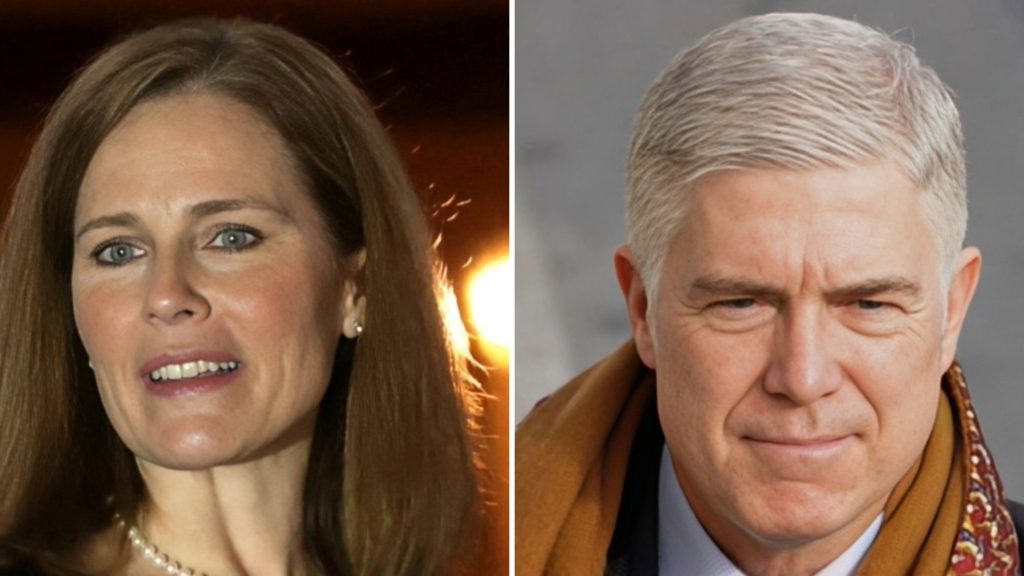
Some analysts argue these justices may feel obliged to rule in ways that advance conservative causes and Trump’s agenda. However, others counter that Supreme Court justices are independent once confirmed and not necessarily beholden to the presidents who nominated them.
Potential Conflicts of Interest: Justice Samuel Ality
In addition, Justice Samuel Alito has long held very conservative views, especially on social issues like abortion and religion. Former President George W. Bush nominated Alito but he is ideologically aligned with Trump’s base.
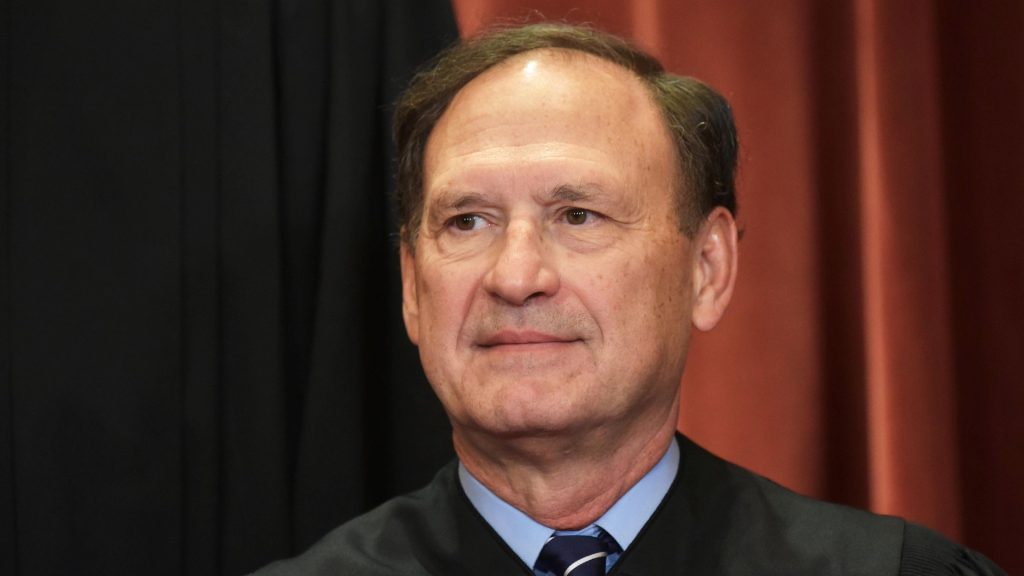
Alito’s spouse, Martha-Ann Bomgardner, has also been involved with conservative causes and served in the Bush administration. Although less directly tied to Trump, Alito’s ideological leanings and spouse’s affiliations lead some to question his impartiality in cases involving the former president.
What Happens if Thomas Declines to Recuse Himself?
If Justice Clarence Thomas refuses to recuse himself from cases involving former President Donald Trump, it could undermine public trust in the Supreme Court and raise ethical concerns. According to the Code of Conduct adopted by the Supreme Court in November 2021, justices should recuse themselves from ruling in cases where their “impartiality might reasonably be questioned.”
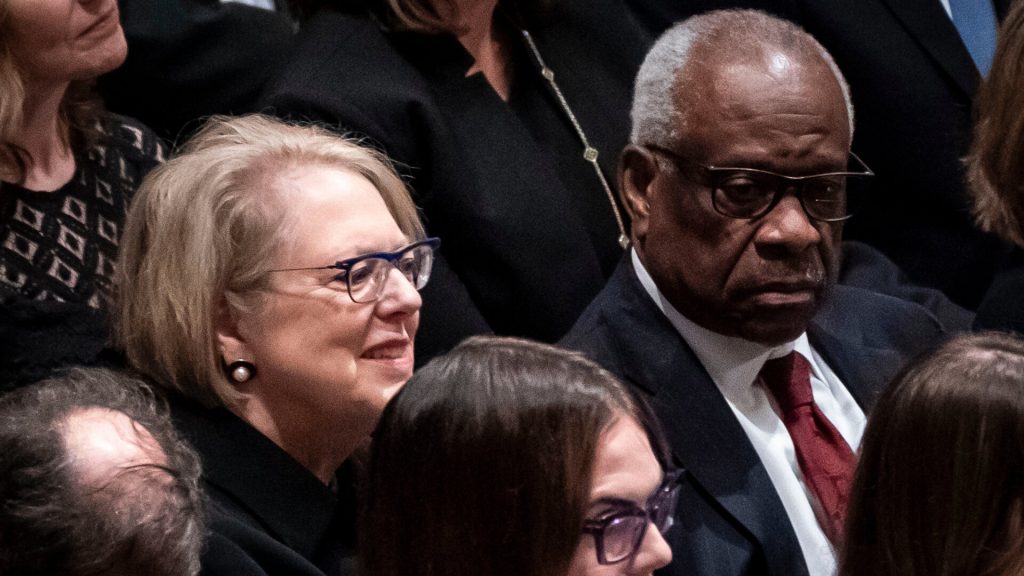
Given his wife’s involvement in efforts to overturn the 2020 election results and Thomas’s relationships with influential conservatives, his impartiality in Trump-related cases has been called into question.
A Steady Push For Recusal
Justice Thomas is facing calls to recuse himself from Trump-related cases due to the lobbying efforts of his wife, Ginni Thomas. While Supreme Court Justices have historically been given wide latitude in recusal decisions, Thomas’ situation may test the boundaries of judicial ethics and impartiality.
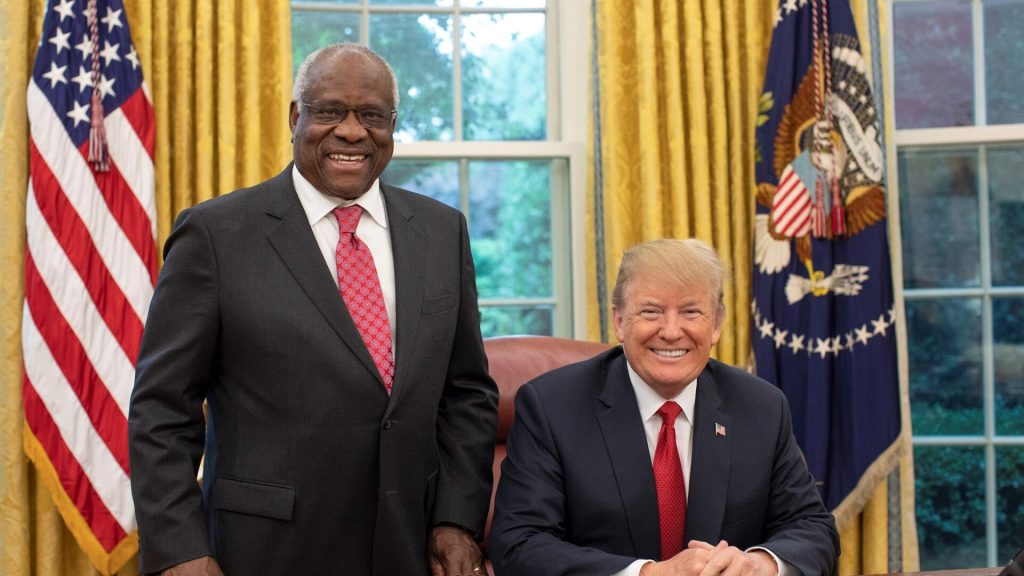
The outcome of this controversy could set an important precedent for when Justices should step aside from cases involving the partisan political interests of a spouse. Thomas will need to carefully weigh his obligations to the Court and perception of fairness against his situation.

